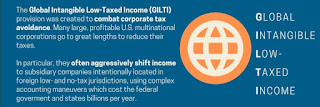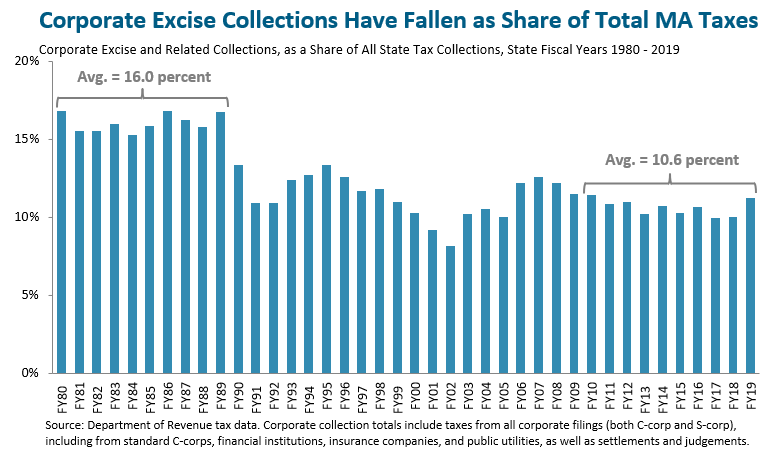"Aggressive tax avoidance is a tactic often employed by large, multinational corporations and it's hurting our communities," said Marie-Frances Rivera, president of MassBudget. "At a time when there are calls for increased revenue to fund education and fix our broken transportation system, we can't afford to forfeit these dollars. Future generations are depending on us to do what's right."
Recognizing the scope and scale of this problem, federal lawmakers established a process for identifying some of this shifted income and then taxing a portion of it. The Global Intangible Low-Taxed Income (GILTI) provision allows the federal government and the states to recoup some of the tax dollars lost to aggressive corporate income shifting. "Currently, Massachusetts is not making full use of this powerful tool," said Kurt Wise, senior policy analyst and author of the report.
Key findings in this report include:
"Recoupling to the GILTI provision would level the playing field for corporate taxpayers and would allow the Commonwealth to collect millions in tax dollars now lost to sophisticated accounting tricks."
- The federal government has created a tax provision, GILTI, to combat this abusive tax planning;
- Massachusetts lawmakers decoupled from this federal provision in 2018. Instead of taxing 50 percent of GILTI, as the federal provision does, Massachusetts now taxes only five percent;
- If lawmakers now choose to recouple to the federal provision, the Commonwealth stands to gain up to $450 million in additional revenue each year;
- Fourteen states - including ME, VT, NH and RI - have adopted the federal GILTI provision, taxing 50 percent of GILTI; and,
- States are on solid constitutional footing when taxing the GILTI, backed by multiple rulings of the U.S. Supreme Court dating back to the 19th Century.
For the full infographic
http://massbudget.org/reports/pdf/GILTI%20Infographic.pdf
For other resources, like our Gas Tax: What Is It and Who Pays fact sheet and more, visit our tax homepage here http://massbudget.org
The Massachusetts Budget and Policy Center (MassBudget) produces policy research, analysis, and data-driven recommendations focused on improving the lives of low- and middle-income children and adults, strengthening our state's economy, and enhancing the quality of life in Massachusetts.
What is GILTI?
"The Global Intangible Low-Taxed Income (GILTI) provision was created to combat corporate tax avoidance. Many large, profitable U.S. multinational corporations go to great lengths to reduce their taxes."
 |
| MassBudget: Taxing The GILTI |










